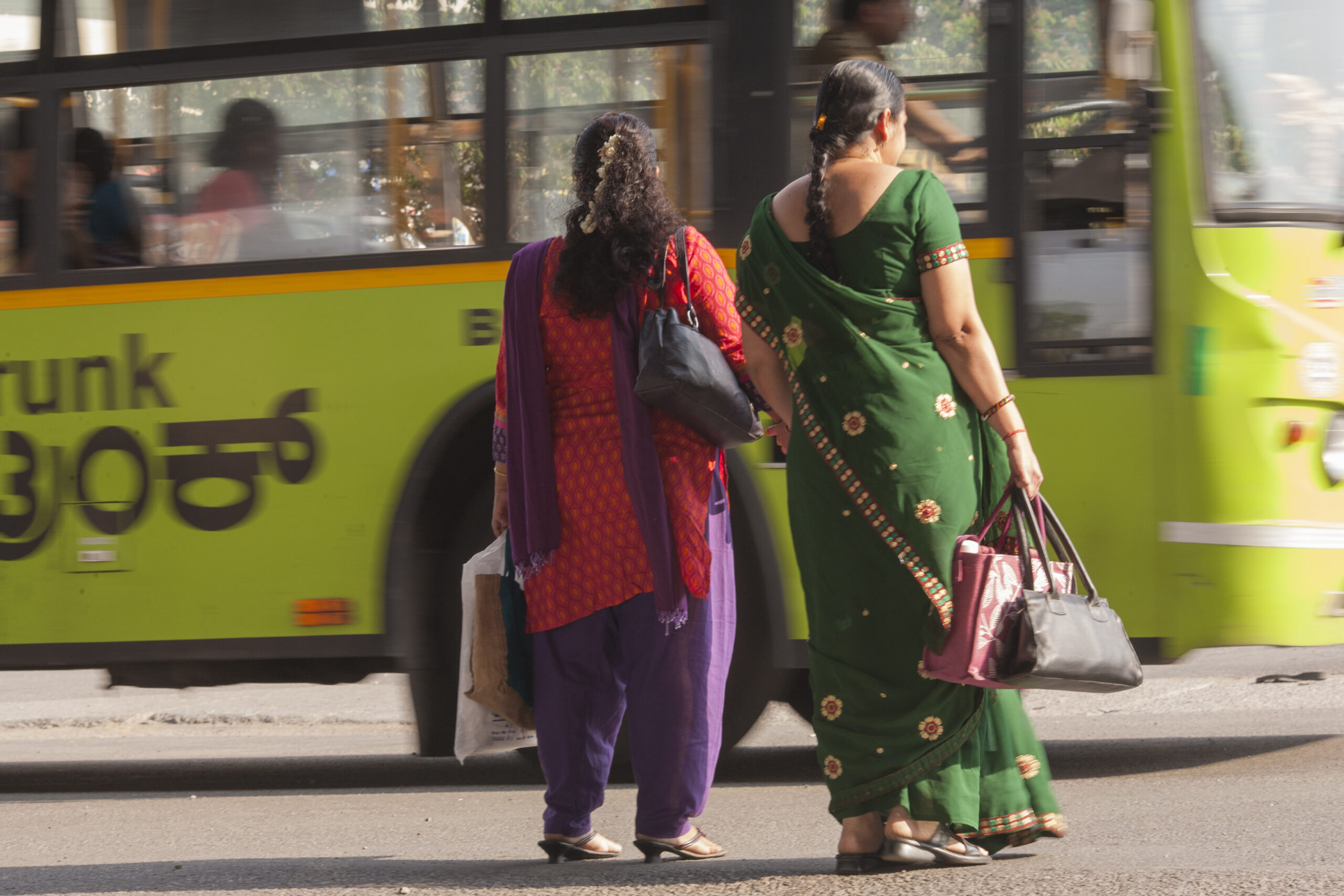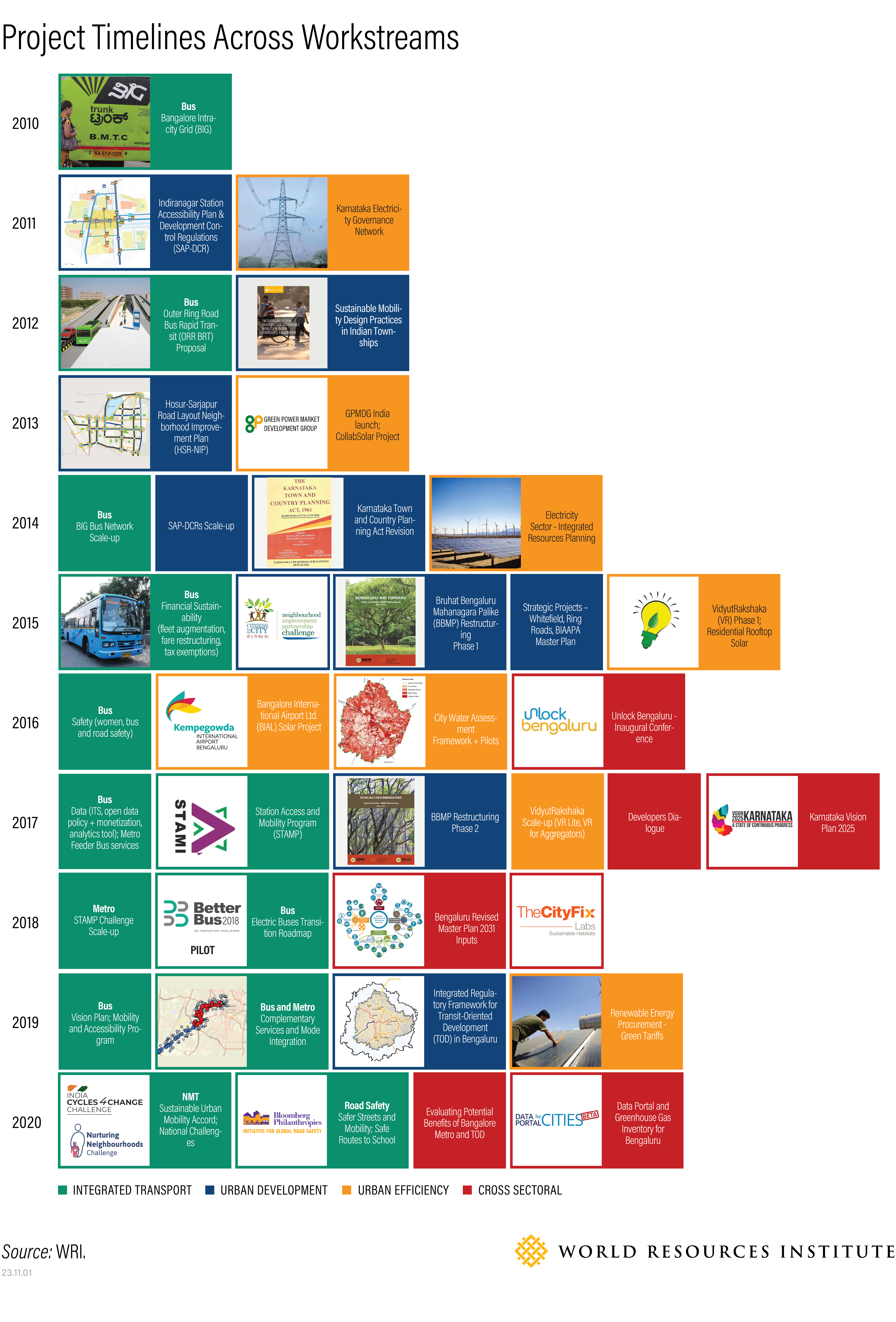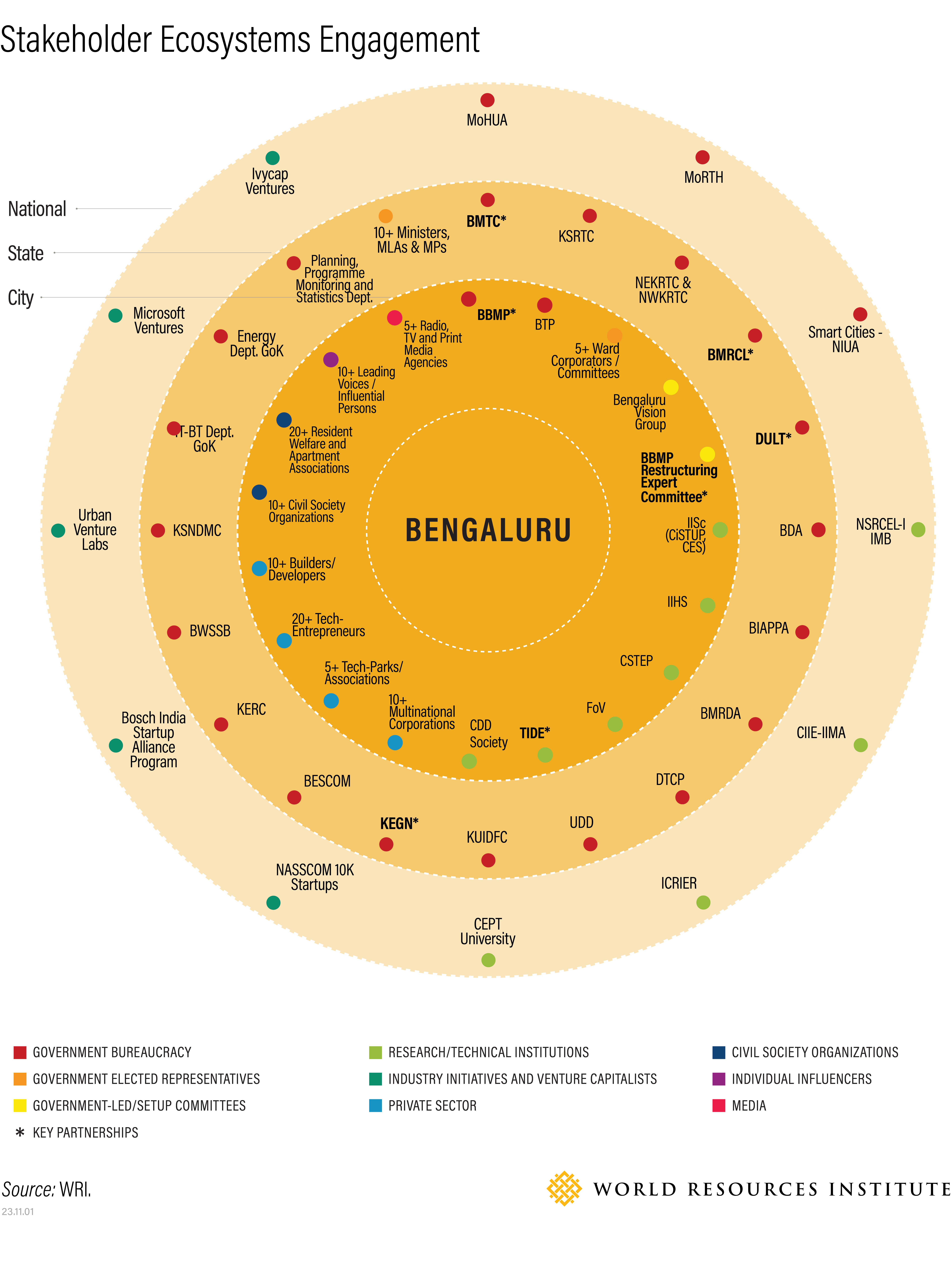
Bengaluru is one of the world’s fastest growing metropolitan economies. A favored destination for investors and talent alike, this leading innovation hub is one of the largest technology clusters worldwide and home to 400 Fortune 500 companies. However, the planning and management of the region’s resources and public investment in essential infrastructure has been unable to keep up with the hectic pace of growth and the demands of residents. As a result, Bengaluru is contending with challenges of sprawl, congestion and environmental degradation, all exacerbated by growing climate risks.
WRI India Ross Center has responded by working closely with the city over many years, and across several sectors, an effort that has evolved over time and that now informs our Deep Dive Cities Initiative, like similar long-term work in Mexico City and elsewhere.
Our new report, “Our Journey with the City,” details the experience of our deep engagement with Bengaluru, highlighting key lessons, and areas of work and outcomes, along with evaluating WRI Ross Center’s role in advancing broader ecosystem change.
Stacking and Expanding Projects to Break Sectoral Siloes
Starting out as EMBARQ India in 2010, WRI India Ross Center for Sustainable Cities has maintained a steady presence in Bengaluru for over a decade. Pursuing a long-term vision of sustainable development, we have worked across multiple scales, engaged with a wide range of stakeholders, and deployed a variety of sectoral strategies to maximize influence and impact.
A common call among urban planners and advocates is the need for more cross-sectoral thinking and action. Not just a climate project, for example, but something that addresses social and local economic issues too. But how do we break out of our siloes? Our experience points to several paths, including long-term engagement, being nimble and responsive to changing local needs, and pursuing multiple ways to engage with the community and effect change.
Our programmatic work has evolved over time. We started with a focus on bus systems and safe access to stations, moved to transit-oriented development and multimodal integration, and then progressed to look at regional urban expansion and bringing efficiencies to clean energy, water management, and climate resilience. By being flexible and aligning our work to the needs of the hour while maintaining a presence over time, we have been able to address systemic issues such as governance reforms and finance.

Technical Expertise Across Stakeholders
How this work gets done is important. Over the years, we have played a crucial role in bringing data, domain knowledge and technical expertise to support on-the-ground projects and inform budgets, policies and plans at different scales. As our work in the city has grown, so has the number and range of stakeholders with whom we have built close working relationships. These include government agencies, the business community, civil society organizations and peer institutions. We have brought a science-based and nuanced understanding to key issues and built the capacities of various stakeholders. This process informs discourse in the city, particularly among thought leaders, influencers and decision-makers.
Apart from our core knowledge-sharing and capacity-building activities, our programmatic work has been reinforced and expanded through platforms like Bus Karo, STAMP and The CityFix Labs India that have delivered novel solutions for improving urban services, while also cultivating the city’s innovation ecosystem through partnerships and peer-to-peer learning. We have also created public outreach campaigns such as VidyutRakshaka, Personal2Public and Bus Day to help change mindsets and behavior towards environmental stewardship and sustainable lifestyles.
Our pilot projects have set precedents by developing methodologies and proof-of-concepts. Bringing an integrated evidence-based approach has enabled us to stay objective, established our value proposition and built credibility. It has also helped us deepen our understanding of the local context and participate in broader initiatives of the city, which has been key to expanding our reach and advancing the public discourse on urban sustainability.
Overall, we estimate WRI India has closely engaged with more than 150 stakeholders across the city and conducted over 65 workshops with hundreds more. We have also produced more than 50 research products and helmed over 15 platforms and campaigns.

Lessons Learned
The outcomes of our engagement in Bengaluru have been broad, as reflected through our key performance and influence indicators. We estimate this work has enhanced or informed at least 20 plans and policies in the city, reduced 136,525 metric tons of carbon emissions and 213 million hours of travel time, saved 390 lives via safer roads, and leveraged $198 million in investments (with $3.4 million in savings). This experience has also allowed us to scale similar efforts to at least 10 other Indian cities and strengthen state and national level policies and programs.
Five key lessons from our experience in Bengaluru:
- Choose Entry Points Wisely and Establish Trust: Though we strive for transformative or systemic change, sometimes entry points have a narrower scope. A project or targeted engagement can nevertheless help develop contextual knowledge and expertise, along with building trust and laying the foundation for more integrated solutions to follow.
- Work Within the Political Economy and Governance Complexities: It is necessary to go beyond informing policy and plans to help the city structure strategic, well-designed and viable projects that can secure budget allocations. Engaging in local discourse on draft manifestos, citizen charters and city budgets can help inform and align city priorities.
- Establish Cross-Sectoral Partnerships for Greater Impact: It is important to establish partnerships with various actors early in the process to ensure systematic collaboration. Effective communication, capacity building of stakeholders, and engaging with agencies that have the mandate and means are crucial to implementing systemic change.
- Leverage Internal and External Champions: Leveraging staff strengths and establishing “city leads” can help build partnerships and allow the organization to quickly act on opportunities. Establishing a chain of communication and collaboration across teams can help build internal capacity and develop integrated solutions that lead to successful projects.
- Maintain Long-Term and Effective Engagement with Donors: Affecting ecosystem-level changes requires staying engaged and shifting the needle over time. Given the long gestation periods of cross-sectoral work, it is important to establish milestones and robust performance indicators, and to convey achieved outcomes. We also need to explain the scope and necessity of unrestricted and “patient” capital for addressing systemic issues.
WRI India Ross Center continues to support key initiatives in Bengaluru, most recent among them being the preparation of a Climate Action and Resilience Plan, with C40 Cities and the city, and downstream activities for implementation. We are currently engaged in allied efforts to enable transit-oriented development and multi-modal integration, increase public transport ridership, and conserve and enhance the city’s blue-green infrastructure.
WRI Ross Center’s Deep Dive City Initiative, built from the experiences in Bengaluru among other cities, is an integral part of our institutional strategy. The lessons learned from Bengaluru are not just derived from our successes but also from efforts that did not succeed. Taking this pragmatic approach forward with our other Deep Dive Cities, including Mumbai, Delhi, Hyderabad and Kochi, is enabling us to strengthen partnerships and catalyze citywide change in more places and more ways.
Radha Chanchani is Senior Manager of Urban Development for the Sustainable Cities & Transport program at WRI India Ross Center for Sustainable Cities.
Jaya Dhindaw is Executive Program Director of WRI India’s Sustainable Cities program and Director of WRI India Ross Center for Sustainable Cities.
Madhav Pai is CEO of WRI India.
Clare Blackwell is a Research Analyst for WRI’s Urban Development team.








